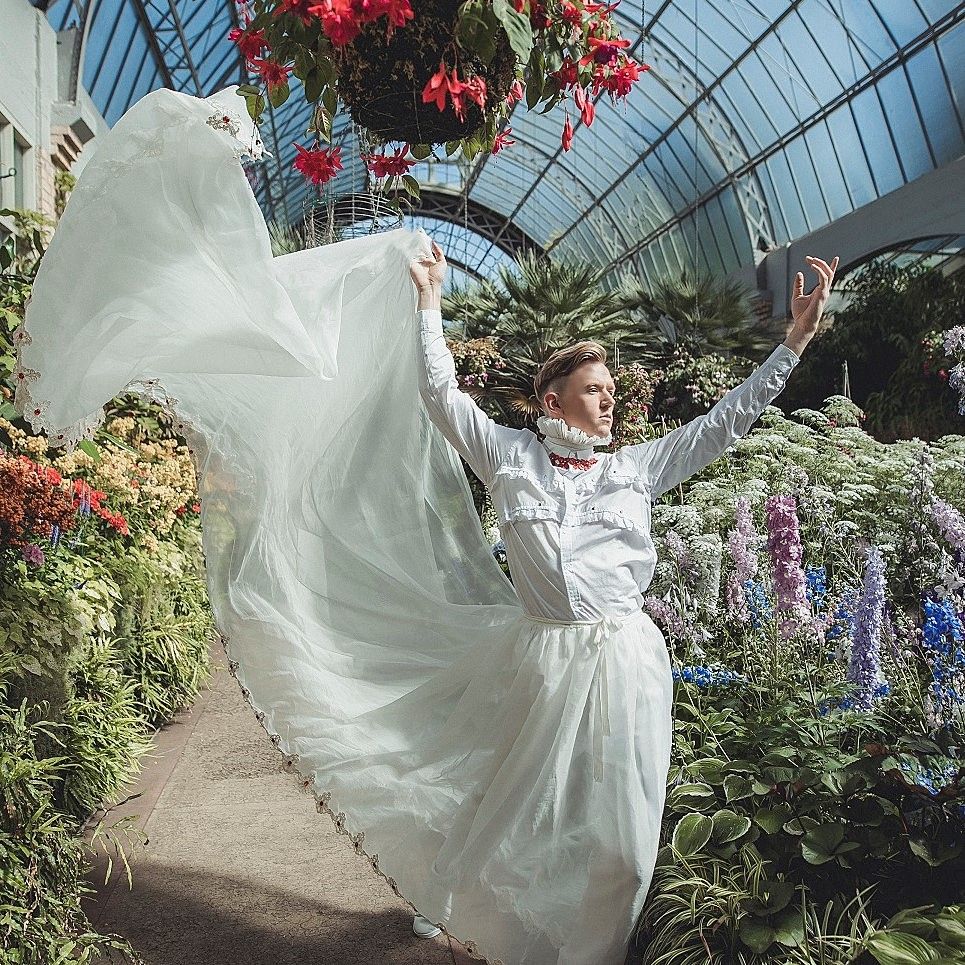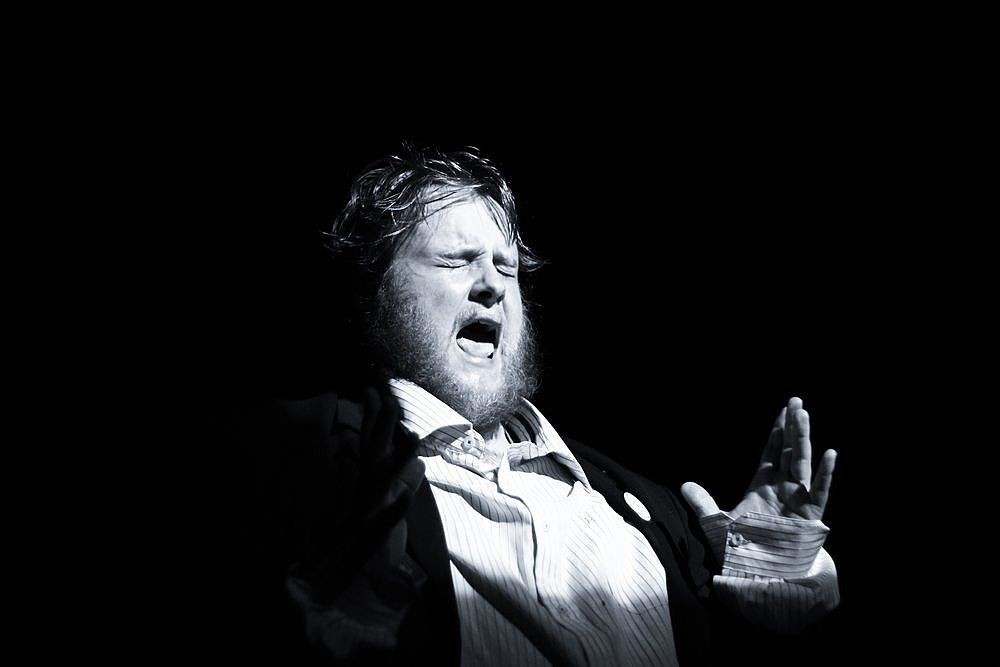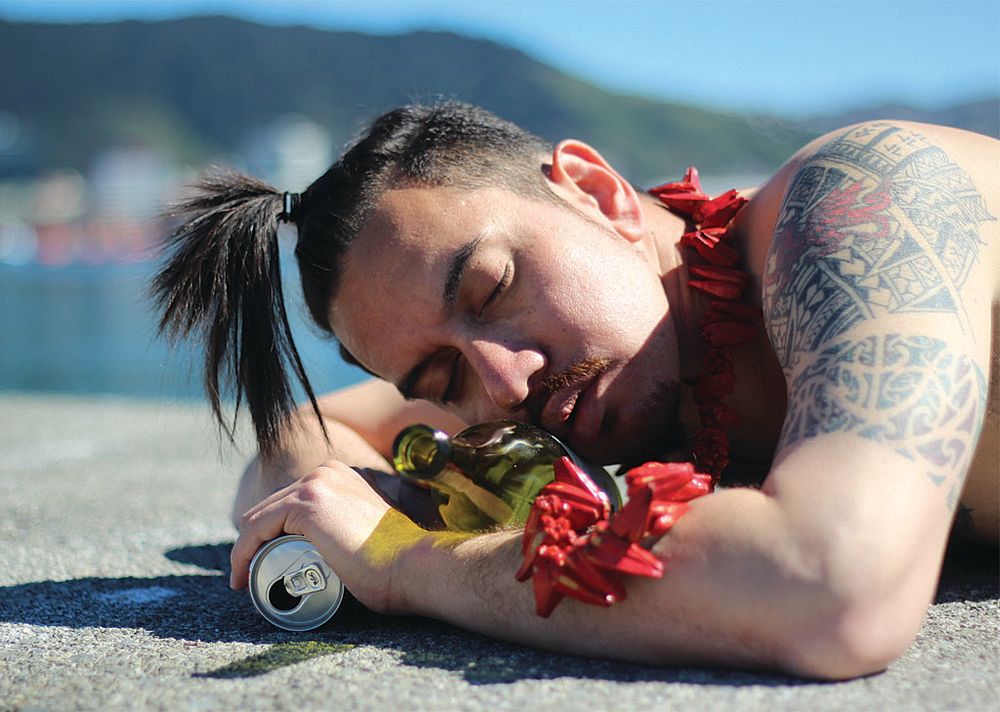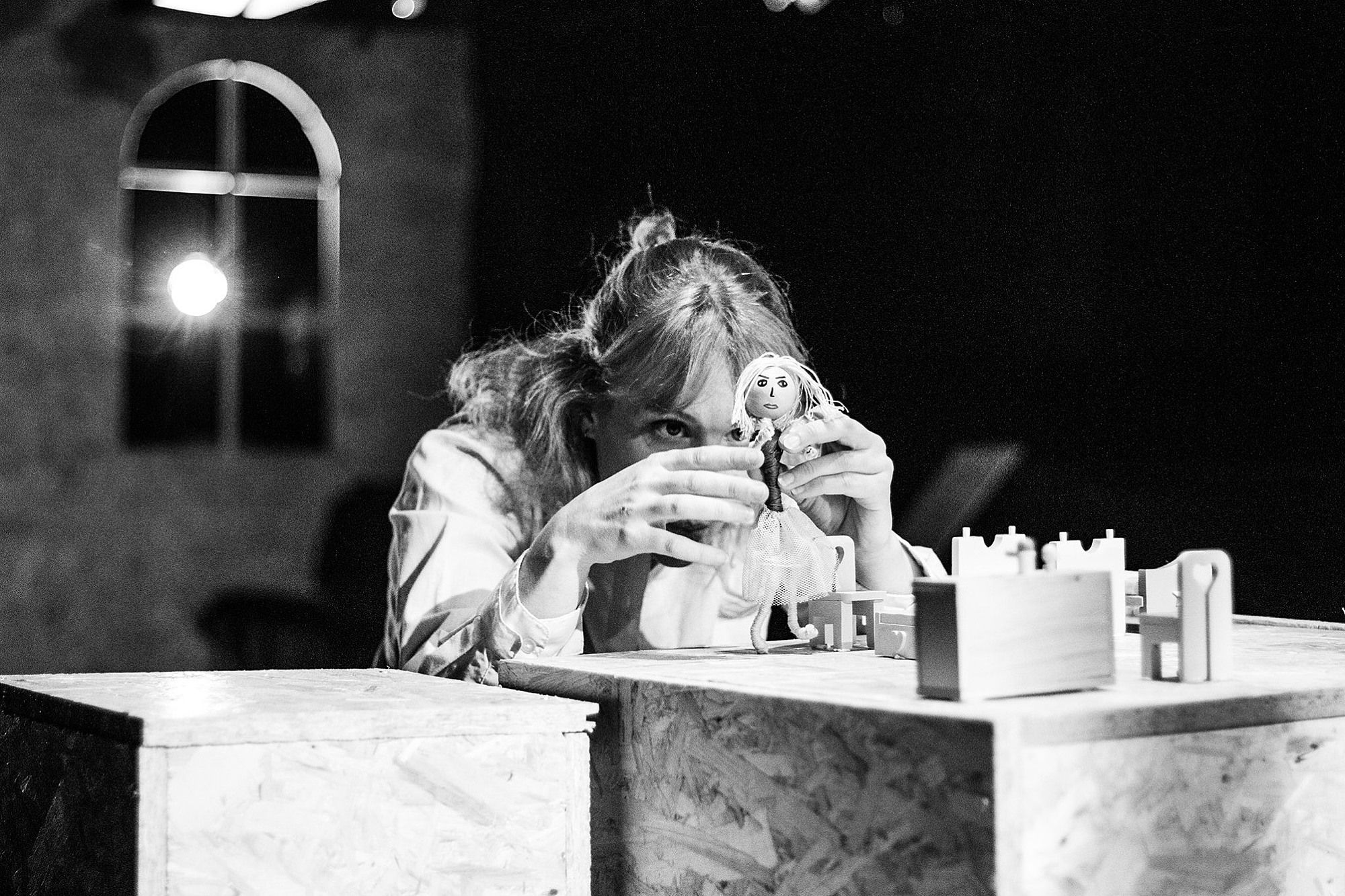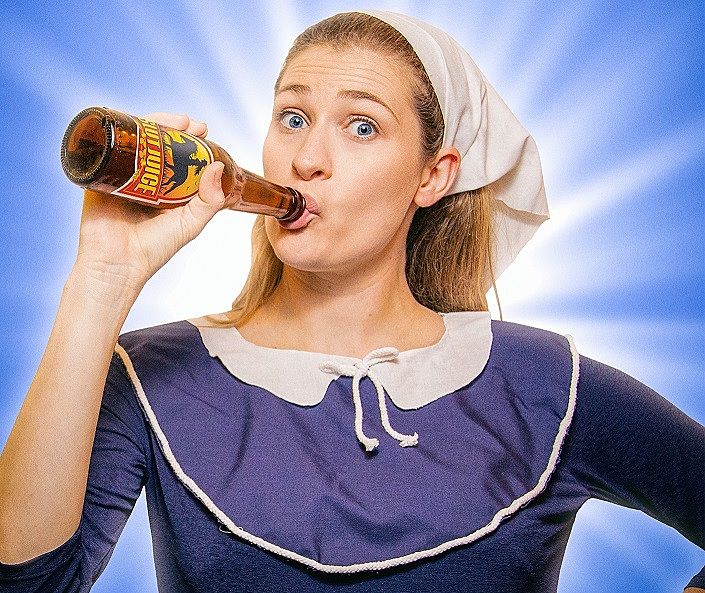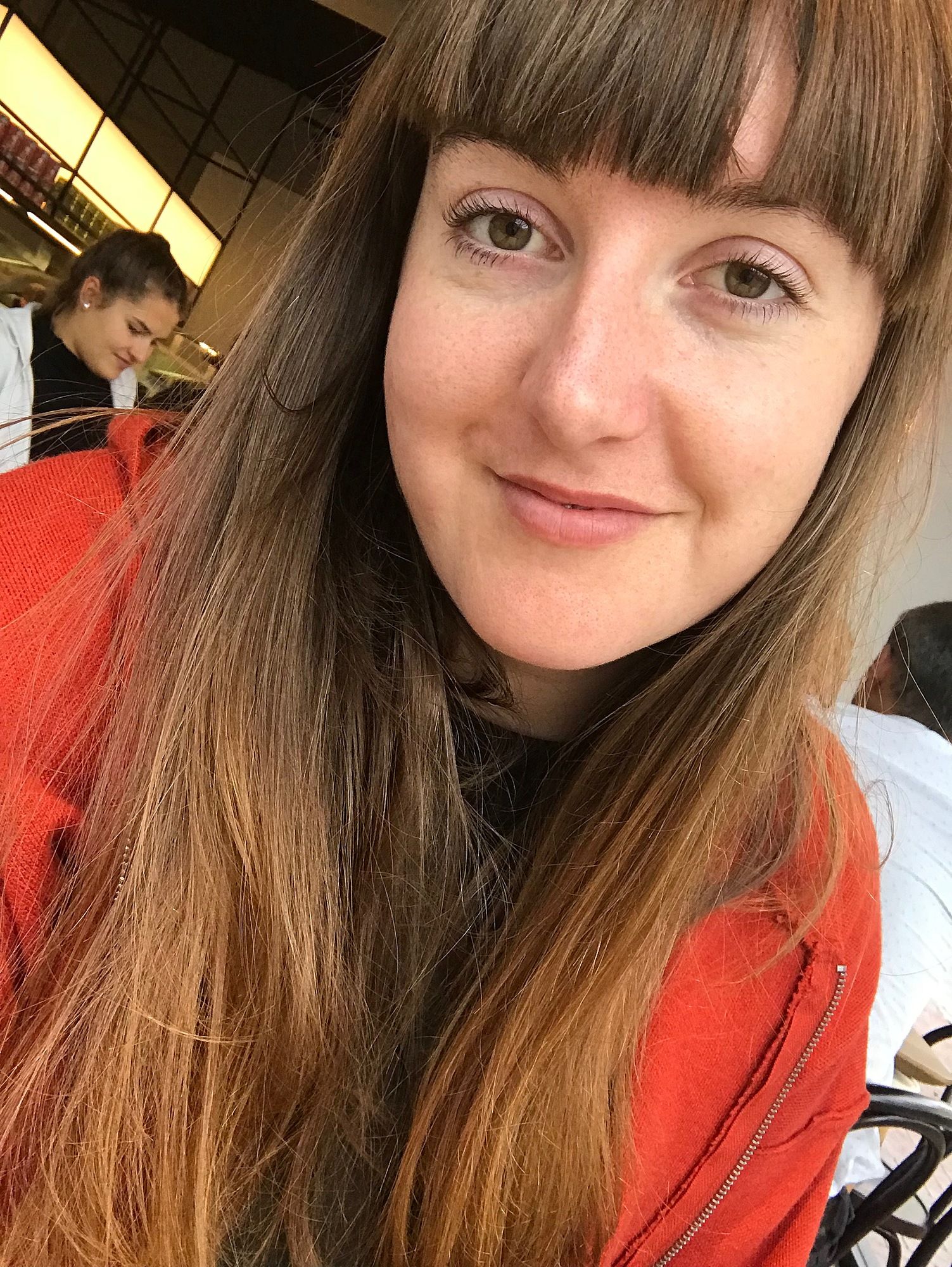Make Me Laugh
A new generation of theatremakers is turning to stand-up to tell its stories - and breaking down the walls between New Zealand's theatre and comedy communities in the process. Annabella Gamboni talks to some of the stars of this new comedy order about the artistic and financial reasons behind this sea change.
A new generation of theatremakers is turning to stand-up to tell its stories - and breaking down the walls between New Zealand's theatre and comedy communities in the process. Annabella Gamboni talks to some of the stars of this new comedy order about the artistic and financial reasons behind this sea change.
There’s a lot of snobbery around New Zealand stand-up comedy. I’m not just talking about the Stuff comments section, either. In artistic communities, particularly theatre communities, it’s often considered a populist form without much in the way of nuance – or, for that matter, value. “A lot of people look at stand-up and think: ‘That’s easy, they’re not even pretending to be someone else,’” says Uther Dean.
The award-winning playwright of WATCH and Me and My Sister Tell Each Other Everything, and the co-founder of the equally award-winning Wellington-based theatre company my accomplice, Dean is one of my favourite playwrights. He also almost exclusively performs comedy now. In this dank, sweaty meeting room at work, I ask him about why he’s made the change.
“When an audience laughs at a joke,” he responds, “that’s the best natural high I know. I feel like what God feels like.”
Dean was the first theatremaker I noticed dropping theatre in exchange for stand-up. As an amateur theatremaker myself, one of my first reactions was derision. Why would Dean – and, later, other practitioners like him – cross over from the dramatic spectacle of theatre into one man, one mic territory?
Well, comedy is undergoing a kind of renaissance. International comics like Hannah Gadsby, Aditi Mittal and Kate Berlant are using the form in exciting new ways, exploring how they can use the art of telling jokes to better tell their stories.
In Aotearoa, some of our most exciting new comics – the likes of Hayley Sproull, Hamish Parkinson, Laura Daniel, Eamonn Marra, and even three of 2019’s Billy T nominees: Donna Brookbanks, Kura Forrester and Thomas Sainsbury – have a background in theatre or improv. These practitioners have harnessed what they’ve learned in the theatrical space – performance styles, writing techniques, tonal cues, design elements – and brought it over to comedy stages, often with innovative results.
Dean has been doing theatre since before he can remember. After nine years and about 20 seasons of work with my accomplice, Dean started performing his own comedy. It was something he’d always wanted to do, but for many years it had seemed unattainable. “Comedy shows felt the same way that music still feels to me,” he explains. “I have no musical skill whatsoever. When I see someone perform a song or compose a song, especially, I can’t fathom what is happening.
“But then through seeing comedy live, and especially when... This is cruel, but I saw bad comedy shows, and I saw bad comedy shows that had good bits, and that’s when I realised that’s something I could do.”
Chris Parker is a writer for TV3’s Funny Girls and 7 Days; he has also toured the country as one third of the cast of Silo Theatre’s Hudson & Halls Live and took out the 2018 Fred Award – the New Zealand Comedy Festival’s award for the best show presented by a New Zealand comedian – for his show Camp Binch. Auckland-based actress Brynley Stent has appeared on Funny Girls and Jono & Ben and, along with Rhiannon McCall, wrote and performed Why Does This Feel So Good? as part of this year’s Comedy Festival. Like Dean, both Parker and Stent say they’re attracted to the immediate feedback that a comedy audience can give a performer.
“You have the beautiful satisfaction of making people’s day. Like, maybe they had a shitty day and then they had a laugh,” Stent says.
“I reckon I’m addicted to it,” Parker says. “I love being on stage in front of a crowd and giving them the night of their life... that’s where I found my purpose in the world. I feel useful. I feel entirely un-useful in every other capacity except when I’m onstage.”
“When an audience laughs at a joke, that’s the best natural high I know. I feel like what God feels like.”
Two-time Billy T Award nominee James Nokise is one of a handful of makers who have led the way on blurring the lines between theatre and stand-up, but he started from the other side of the aisle. Nokise has been doing stand-up comedy since he was a law student at Victoria University of Wellington. He’s an omnipresent face on the local circuit, has performed several times at the Edinburgh Fringe and was part of the 2015 New Zealand Performance Festival at La MaMa Experimental Theatre Club in New York City, performing his comedy show So-So Gangsta. Most recently, he’s been the host of RNZ’s Eating Fried Chicken in the Shower podcast.
Nokise was solely a funny guy on stage until 2009, when he wanted to tell a story that couldn’t be neatly packaged into jokes. “My theatre work started with having stories that I wasn’t able to tell using comedy,” Nokise says. “It grew out of the frustration of having a story inside you but not being able to tell it.”
That story was the semi-autobiographical play The Minister’s Son, which saw Nokise nominated for Outstanding New Playwright at that year’s Chapman Tripp awards. The decision to write The Minister’s Son as a play was very deliberate: much of the script was pulled verbatim from family stories and drawn from Nokise’s own memories of growing up.
The Minister’s Son follows the story of Povi, a Samoan minister, and Mary, the British woman he falls for. They marry and have a child named Jimmy. When Mary fails to intuitively fall into the traditions of Samoan life, though, Povi begins beating her. The show had its comic moments, but it is largely a serious drama, dealing with the emotional wreckage left by domestic abuse. Shifting from stand-up into straight theatre felt the most truthful for Nokise in this instance.
“It was the first time I’d thought about shows as a kind of emotional manipulation,” he says. “Sometimes with a subject, you don’t want your audience feeling all happy. If you don’t want that, it’s best not to tell them it’s a comedy show.”
Nokise wanted his audience to sit with what he was showing them – if that was a bit uncomfortable, so much the better. At the same time, he wanted his audience to make their own conclusions from the work. “Theatre allows for great introspection,” he says, “and it also has the great gift of psychological buffers. You can put something out there and people can decide if it’s real. They can take away what they want.”
Nokise's work is often explicitly political, to the point that in 2011 he co-founded No Fefe Collective to produce the political satire series Public Service Announcements. Nokise says that comedy's better for helping audience members understand and process political and social commentary. “You can have all this cool information, but if you don’t get them engaged, they’re not going to pick up what you’re throwing down.”
Some tales, Nokise says, simply require laughter; those tales need to be told in a stand-up environment . It’s better to tell stories that grapple with life as a brown person in post-colonial Aotearoa with stand-up comedy, for example, because it’s important to find a way for audiences to engage with the trauma that doesn’t leave them “in the depths of despair.”
“You put people through this harrowing thing that really happened, and they’re like ‘oh this is horrible,’” Nokise says. “They’ve got no way out.” People – especially people of colour – spend enough time ruminating on the political mess the world’s in as it is, and so it’s important to give them an escape, a release, through comedy.
“You can have people leave a theatre show feeling devastated, but feeling good because they saw something good,” Nokise says. “If they have that experience at a comedy show, it’s probably not a good comedy show... [so] I’m a great believer in finding people a way to leave the [show] so when they leave, they leave.”
“Sometimes with a subject, you don’t want your audience feeling all happy. If you don’t want that, it’s best not to tell them it’s a comedy show.”
For Dean, the reasons for picking comedy are more about his own state of mind. “There is a brutal logic to the way you can present things in comedy that, for who I am right now, makes a lot more sense,” he says. “Like, I feel in this period of history, it feels a lot more useful to go out on stage and say, ‘sometimes I feel like I want to die,’ than try a play about people who want to die.”
“The world is too obvious right now,” Dean says. “Implicit or indirect ideas don't really have a place in the conversations that are worth having today.” If art wants to change the world in 2019 – “and the only thing that unites the best art is that it, in some way, wants to change the world” – then theatre’s focus on metaphor and allusion renders it less useful.
“Comedy, stand-up specifically, is the form best suited for directly attacking issues,” Dean says. “If theatre is metaphor, comedy is pataphor. Which is not to say that metaphor won't have another moment. Just not right now, not today.”
“It all comes back to the kaupapa of your thing,” Parker says about his own process. “What am I trying to express? And so I always think of my mission first, and then all the content I create is one step towards explaining or revealing that to an audience.”
That’s first and foremost a dramaturgical consideration: what ideas you’re trying to communicate with your stories; the tone you’re trying to establish in order to communicate those ideas; your audience’s expectations and how you manage them. But, more frequently now, Parker opts to tell his stories on a comedy stage for its sheer bums-on-seats potential.
“I’m still making theatre shows. I’m just putting them in the Comedy Festival,” he says.
When it came time to produce Camp Binch, Parker’s storytelling show about his experiences of Kiwi masculinity, he decided to market it as stand-up comedy. It was all about ‘accessibility,’ and marketing the production in this way made these ideas more accessible to a wider audience. “Comedy presents itself as very broadly accessible,” Parker says, “in a way that I think theatre could sometimes learn from.”
“It all comes back to the kaupapa of your thing. What am I trying to express?"
For example, Parker argues, comedy shows are, on average, cheaper than going to the theatre. This means that audiences are more likely to take a punt on an unknown comic on their precious Friday nights.
“In terms of putting itself out there, comedy’s like, come along! It’s a great night! And it might make you think, too,” he says. “Theatre holds itself a little higher, artistically, which I feel some people find hard to engage with sometimes.”
Comedy also has a fundamental ambition that almost all of its practitioners share, while theatremakers have a variety of potential goals, often complex ones. A play might want to make you angry, make you cry, or make you shift nervously in your seat. But a stand-up routine? A comic is always looking for laughter. “Theatre and non-shit films are often preaching to the converted,” Dean says. But since almost everyone likes to laugh, it’s much easier to get a wider audience to connect with your ideas.
“Comedy allows you to reach people who don't already agree with you,” Dean says. “That makes it more challenging – it's much harder to sell socialism and the innate complexity of other people to people who don't already want to buy them – but also much more worthwhile.”
Comedy is also more accessible to performers. Comedy is often cheaper and easier to tour; emerging performers have more opportunities to get in front of a paying audience, as they aren’t limited to short five-night seasons; and ample scratch nights and raw comedy nights give performers more audiences to try new material out on. Conversely, new theatremakers are often reliant on hotly contested government and council funding windows that come around a couple of times a year.
For Parker, comedy showed him a path for development when he was feeling lost as an actor. “There are some really traced stepping stones and clear infrastructure,” he says. “Like the [New Zealand Comedy] fest is such a powerhouse in terms of how it builds up performers. Rose [Matafeo, recent Edinburgh Comedy Award winner] came through Class Comedians. That’s insane… look at her now.”
“Comedy allows you to reach people who don't already agree with you. That makes it more challenging – it's much harder to sell socialism and the innate complexity of other people to people who don't already want to buy them – but also much more worthwhile.”
That’s a sentiment echoed by Stent, who originally set up her 2017 one-woman comedy Escape from Gloriavale as a way to get solo stage time. The opportunity to drive her own project was also a welcome chance to flex her writing muscles. “I enjoyed the process of making it,” she says. “It was really straightforward. It wasn’t like, how can I tell a story and put jokes in, it was more like: how would the character react?”
Theatre isn’t dead – and comedy isn’t gleefully dancing on its grave, either. Rather, performers are muddying the boundaries between the two, creating works that marry the pursuit of laughter to the complexities of the theatre. This cross-pollination is giving these medium-agnostic performers new avenues to explore their voices and develop new ways of telling their stories; and it’s also giving them the opportunity to make a living as artists in Aotearoa. It’s a reminder that our age of Netflix isn’t just the age of Bird Box and Black Mirror, but of Repertoire, Nanette and One of the Greats. It’s an age of synthesis and experimentation – snobbery will only hold it back.
Header image: Chris Parker in Camp Binch (2018). Photo credit: Andi Crown.
